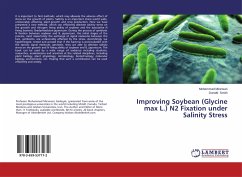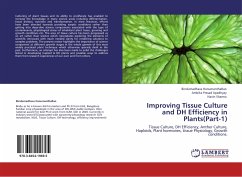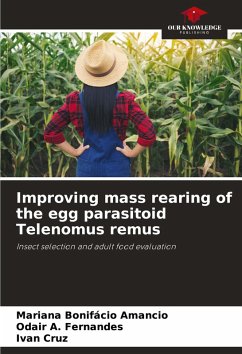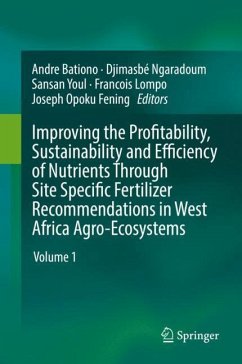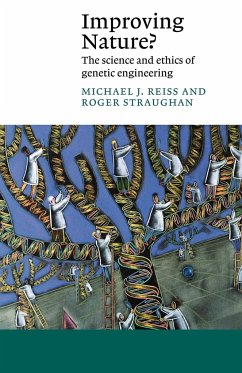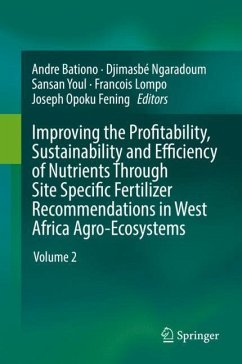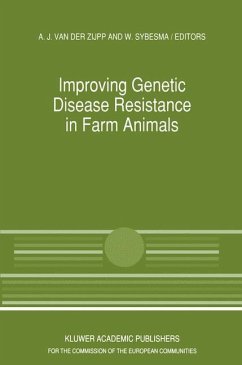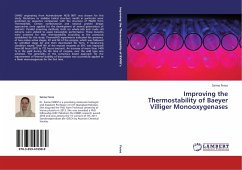
Improving the Thermostability of Baeyer Villiger Monooxygenases
Versandkostenfrei!
Versandfertig in 6-10 Tagen
55,99 €
inkl. MwSt.

PAYBACK Punkte
28 °P sammeln!
CHMO originating from Acinetobacter NCIB 9871 was chosen for this study. Mutations to stabilize helical structure motifs in particular were predicted by sequence comparison with the structure of PAMO from Thermobifida. Certain combinatorial and rational protein design approaches were applied for the development of several generations of mutants. Parallel screening methods, both on whole-cells and crude cell extracts, were utilized to assess biocatalytic performance. These mutants were screened for their thermostability according to the protocols established for this study. ThermoFAD experiment...
CHMO originating from Acinetobacter NCIB 9871 was chosen for this study. Mutations to stabilize helical structure motifs in particular were predicted by sequence comparison with the structure of PAMO from Thermobifida. Certain combinatorial and rational protein design approaches were applied for the development of several generations of mutants. Parallel screening methods, both on whole-cells and crude cell extracts, were utilized to assess biocatalytic performance. These mutants were screened for their thermostability according to the protocols established for this study. ThermoFAD experiments indicated the presence of two native active stages, N1 and N2 of the enzyme, which was followed by unfolded stage (U) and then deactivated (D) form, if denaturing condition stayed. Shelf life of the mutant enzymes at 30°C was improved from 80 hours (WT) to 722 hours (mutant). An increase of more than 1400 % in the yield during the life time of enzyme, over the wild type was achieved. The generality of the consensus based approach for the improvement of thermal stability of biocatalysts was successfully applied to a flavin monooxygenase for the first time.




